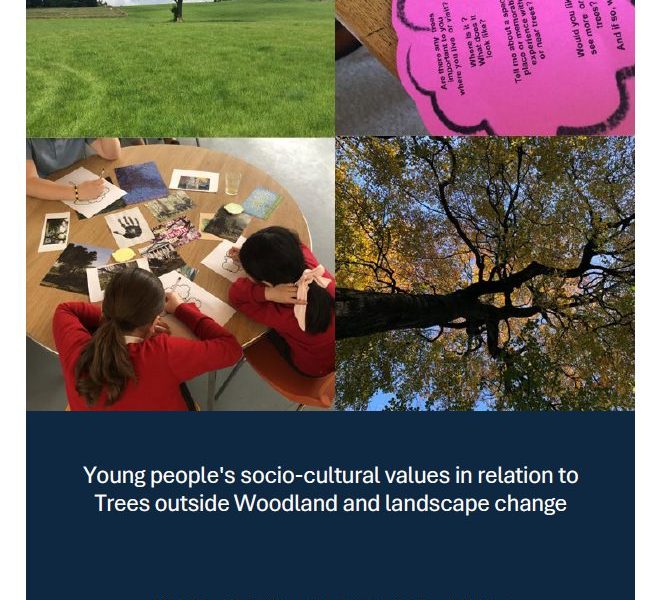We use some essential cookies to make this website work.
We’d like to set additional cookies to understand how you use forestresearch.gov.uk, remember your settings and improve our services.
We also use cookies set by other sites to help us deliver content from their services.

This report examines young people’s experiences of, and relationships with, ToWPUR, exploring their socio-cultural values and specific value orientations.
This In Brief examines young people’s experiences of, and relationships with, ToWPUR, exploring their socio-cultural values and specific value orientations.
This Research Note presents findings from research with groups that are underrepresented as woodland visitors; focusing on their motivations, the additional barriers they face and what opportunities might support greater woodland access.
This report presents ten key insights about working with natural processes for woodland creation that have emerged from our research.
Overview Resilience to climate change, the threat of pests and diseases, tackling the biodiversity crisis, and the implications of these issues for the future of the tree and woodland sector are necessarily being foregrounded in management discussions. Sycamore is a naturalised, fast-growing, and adaptable species with increasing evidence to support...
Forest Research, alongside the University of York, Fera Science and The Tree Council, have developed a practical, new, robust resource to help local authorities effectively measure the social and cultural values of trees in their area.
Agroforestry, the integration of managed trees and agriculture, will help meet national tree planting commitments and provide social, environmental and economic benefits. This project will develop and test a monitoring and evaluation framework for agroforestry agri-environment schemes to measure scheme outcomes and improve future offers.
Legacy socio–economic research relating to: Evaluation and appraisal Access our current and recent socio–economic research.
Legacy socio–economic research relating to: Evaluation and appraisal Access our current and recent socio–economic research.
Legacy socio–economic research relating to: Governance MOTIVE (PDF-218 KB) Access our current and recent socio–economic research.
Legacy socio–economic research relating to: Governance Mapping the woodfuel system (PDF-301K) Access our current and recent socio–economic research.
Legacy socio–economic research relating to: Governance Community woodlands: an overview (PDF-160K) Access our current and recent socio–economic research.
These essential cookies do things like remember your progress through a form. They always need to be on.
We use Google Analytics to measure how you use the website so we can improve it based on user needs. Google Analytics sets cookies that store anonymised information about: how you got to the site the pages you visit on forestresearch.gov.uk and how long you spend on each page what you click on while you're visiting the site
Some forestresearch.gov.uk pages may contain content from other sites, like YouTube or Flickr, which may set their own cookies. These sites are sometimes called ‘third party’ services. This tells us how many people are seeing the content and whether it’s useful.